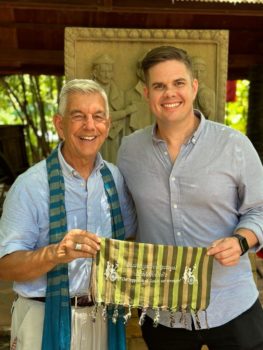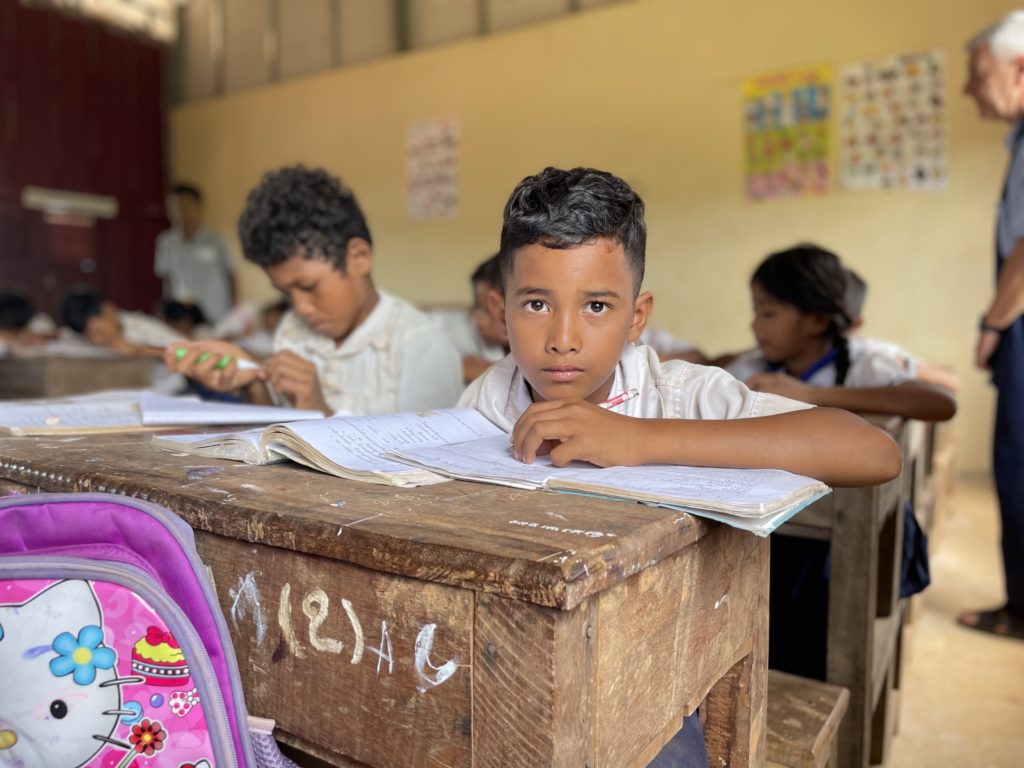The Xavier Network strongly supports the statement issued by the Society of Jesus on March 29th condemning the on-going violence in Gaza and other areas of Israel/Palestine, spilling over into the surrounding countries in the Middle East. We echo its words: “We cannot be silent.”
As Jesuit organizations involved in responding to humanitarian crises around the world, we also express our shock at the killing of 7 aid workers who were delivering essential food aid on April 2. It is reported that 196 aid workers have been killed in Gaza since last October. This is the latest horrific event in a war in which civilians, many of them children, continue to be the main victims.
We join the Jesuits’ call for “an immediate ceasefire, for the release of all the 7 October hostages, for negotiations and for the beginning of a process that will bring freedom, liberty and justice for all in the Middle East, the only road to true peace.”
The Xavier Network brings together Jesuit mission offices and non-governmental organizations from across Europe, North America and Australia. It responds to the needs of victims of conflict, many of whom are civilians, in many parts of the world, including in Syria and Lebanon. For this reason, it is deeply disturbed by the current conflict in the Middle East, just as it also deplores the violence inflicted on innocent victims of other conflicts such as those in Sudan, South Sudan, Myanmar, Haiti, Ukraine and many other places.
The members of the Xavier Network call for:
- an immediate ceasefire in Gaza
- the opening of a humanitarian corridor to allow the immediate delivery of aid to Gaza with guaranteed safe passage of all aid workers
- respect for international humanitarian law and the Geneva conventions governing the legal use of force in armed conflict
- the unconditional release of all hostages abducted on October 7, 2023
- an end to all arms sales which are fueling this conflict
- the resumption of negotiations towards a political agreement which guarantees the right of the two peoples to self-determination, security and freedom
In his Easter message on March 31, Pope Francis appealed for a ceasefire: “Let us not allow the current hostilities to continue to have grave repercussions on the civil population, by now at the limit of its endurance, and above all on the children … War is always an absurdity and a defeat.”
Published 5 April 2024 – Xavier.Network
The Xavier Network brings together Jesuit mission offices and non-governmental organizations from across Europe, North America and Australia. It supports international solidarity and the universal mission of the Society of Jesus as stated in its General Congregation 36: “Our vision is to place faith, justice, and solidarity with the poor and excluded as central elements of the mission of reconciliation.” (D1 para 3)
The members of the Xavier Network are:
1- ALBOAN, Spain
2- Canadian Jesuits International, Canada
3- Entreculturas, Spain
4- Fundação Gonçalo da Silveira, Portugal
5- Irish Jesuits International, Ireland
6- Jesuit Mission Australia
7- Jesuit Missions UK
8- Jesuitenmission, Austria
9- Jesuitenmission, Germany
10- MAGIS Italy
11- Magis Americas, USA
12- Oeuvre des Missions Catholiques Française d’Asie et d’Afrique, France
13- Stiftung Jesuiten weltweit, Switzerland


 Kike is a legend. Along with Sister Denise Coghlan, and countless others, he is widely-regarded, in Jesuit circles and others, for his humanitarian work with victims of landmines in Cambodia. As the Apostolic Prefect of Battambang, though, he is incredibly in demand. He doesn’t tend to have three days, let alone one, available on his schedule to meet with people. But here I was, along with my cohort, spending invaluable time with him and his team, learning about the tremendous work done by the Prefecture.
Kike is a legend. Along with Sister Denise Coghlan, and countless others, he is widely-regarded, in Jesuit circles and others, for his humanitarian work with victims of landmines in Cambodia. As the Apostolic Prefect of Battambang, though, he is incredibly in demand. He doesn’t tend to have three days, let alone one, available on his schedule to meet with people. But here I was, along with my cohort, spending invaluable time with him and his team, learning about the tremendous work done by the Prefecture.